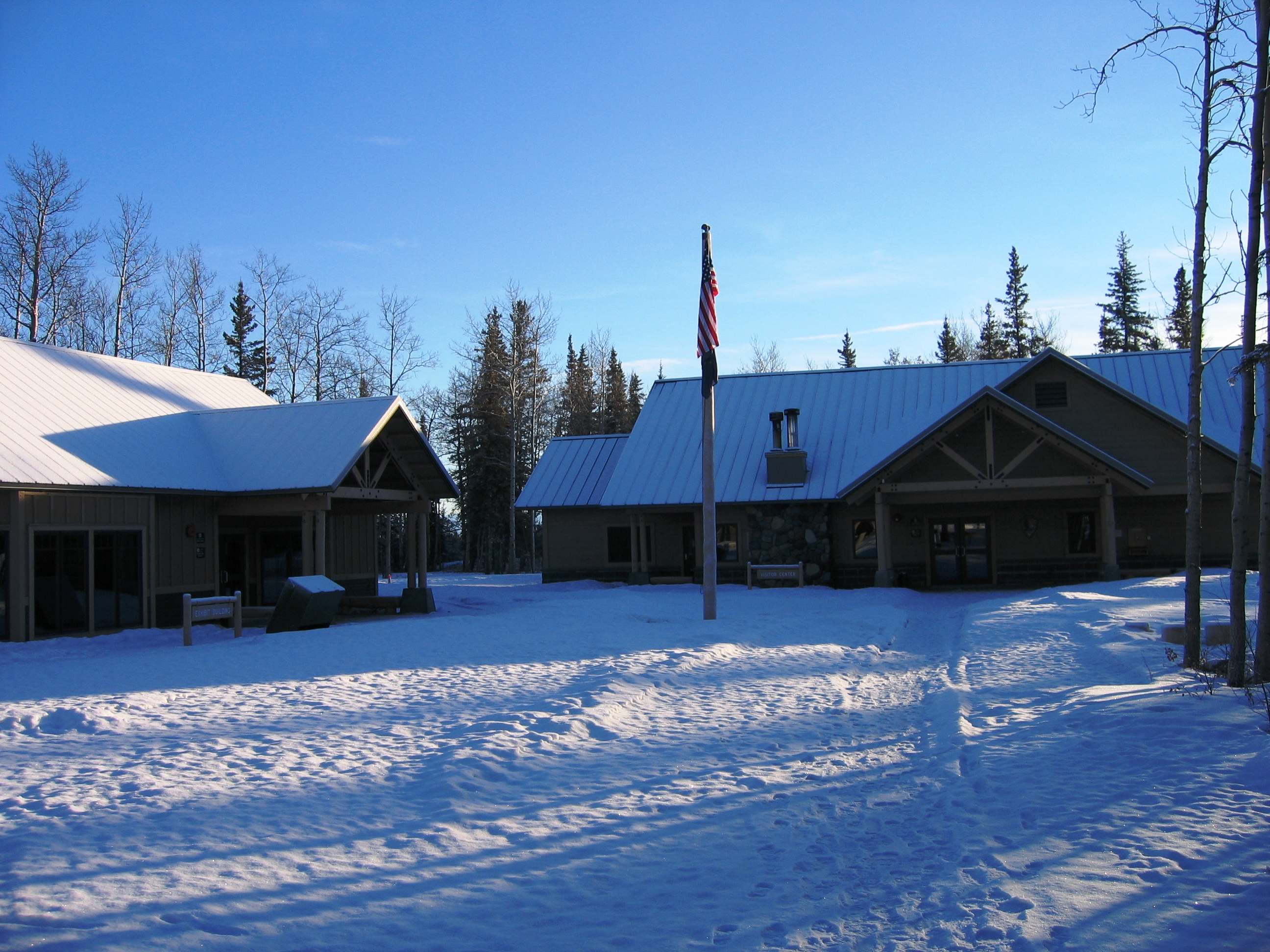 |
| Wrangell-St. Elias Headquarters Visitor Center |
The compendium is a compilation of all designations, closures and restrictions imposed under the discretionary authority within the regulations covering national parks. The compendium is a regulatory tool to help manage Alaska's national park areas for the public's enjoyment, use and protection.
This year, several NPS areas in Alaska are proposing restrictions to taking wildlife in national preserves. These proposals are based on recent changes in State of Alaska regulations pertaining to the take of wolves, coyotes, and bears in some game management units, including certain national preserves. Other proposed changes include the closure of an old trail in Wrangell-St. Elias where a newly constructed trail reaches the same destination, and human waste disposal practices in Glacier Bay.
The NPS is proposing to prohibit the take of wolves and coyotes between May 1 and August 9 in the following national preserves:Denali, Gates of the Arctic, Katmai, Aniakchak, Alagnak Wild River, Lake Clark, Wrangell-St. Elias, and Yukon-Charley Rivers. In some or all areas within these preserves, the State of Alaska now allows wolves and coyotes (including pups) to be taken in late spring and summer when the animals are denning and raising vulnerable offspring. The proposed shortening of the wolf and coyote season will protect animals at the den and during the period when their pelts have little economic or trophy value. It will also protect a subsistence opportunity for taking that wolf or coyote later in the year when their coats are prime in order to sell the pelt for cash.The proposed shorter season is also more consistent with federal subsistence regulations.
The proposed compendiums for Denali, Wrangell-St. Elias and Yukon-Charley Rivers include a prohibition on the taking of brown bears at a bait station. Bait stations typically consist of things such as grease or dog food set in a location that will attract the desired animal where it can then be taken. The public safety concerns posed by food-conditioned bears are widely recognized. These bears are more likely to be a danger to humans, and it is incongruent with best management practices and public educational messaging found in national park areas on the issue of food and bears.
The NPS also proposes to renew a temporary prohibition on using artificial light to take blackbears at dens and taking black bear sows with cubs at dens in Denali and Gates of the Arctic National Preserves.
Consistent with sound management principles and conservation of wildlife, practices that disturb animals when they are in a vulnerable state - in dens, when reproducing, or very young - are usually avoided.Accordingly, these practices have generally been prohibited under federal subsistence and state harvest regulations.Additionally, management practices that seek to increase harvest of predators in order to boost populations of prey species are not consistent with the management of National Park Services areas which are to retain naturally dynamic wildlife populations.
Public involvement in the compendium process began in early December when the National Park Service held the first of seven public hearings to hear input as these restrictions were being drafted. After this round of public comment on the compendium provisions ends on February 15, the NPS will consider revisions and expects to publish the final compendiums in April 2013.
Each park's proposed 2013 compendium is available at:http://www.nps.gov/akso/management/compendiums.cfm. A written copy may be requested directly from the park or the National Park Service, 240 W. 5th Avenue, Anchorage, AK99501, Attn:Compendium.
Comments will be accepted by mail or e-mail between January 15 and February 15, 2013. Comments are welcome at any time in addition to this timeframe, but comments received after February 15 will be considered in future compendium revisions.

No comments:
Post a Comment